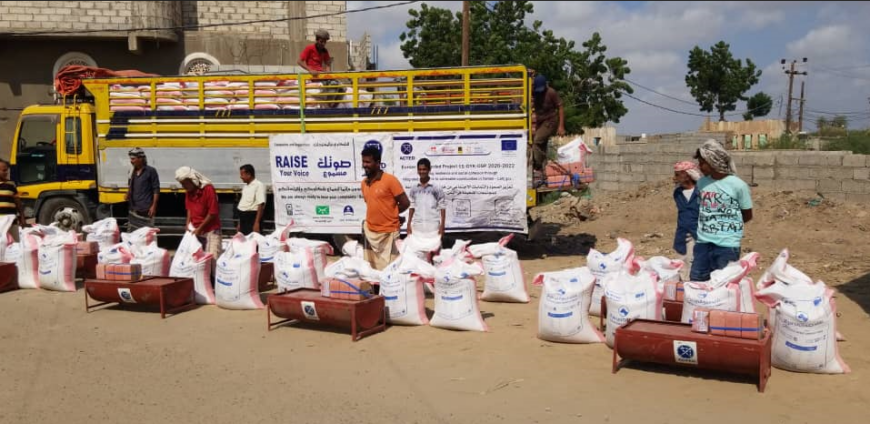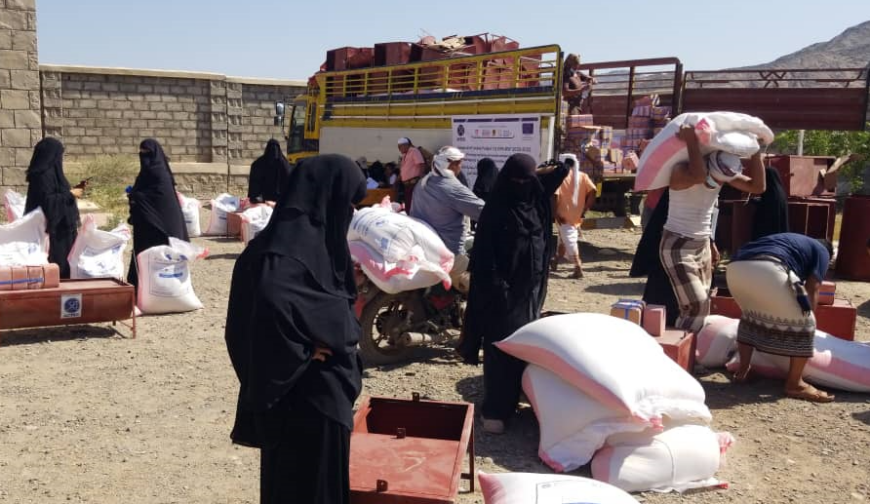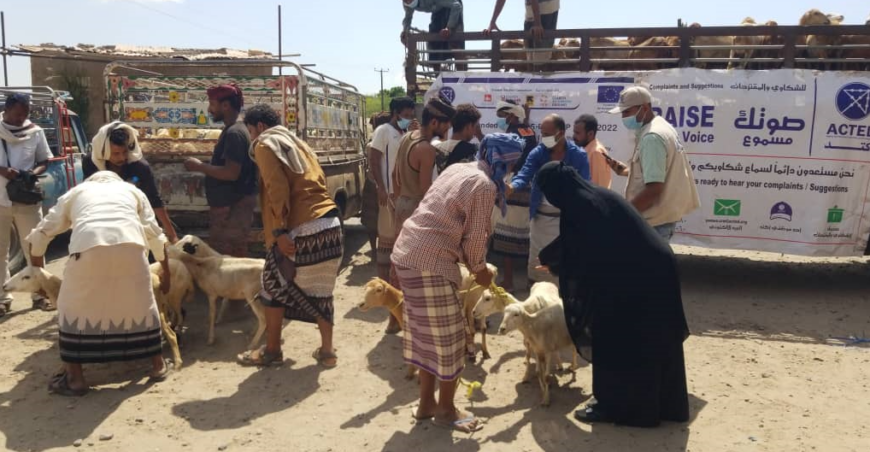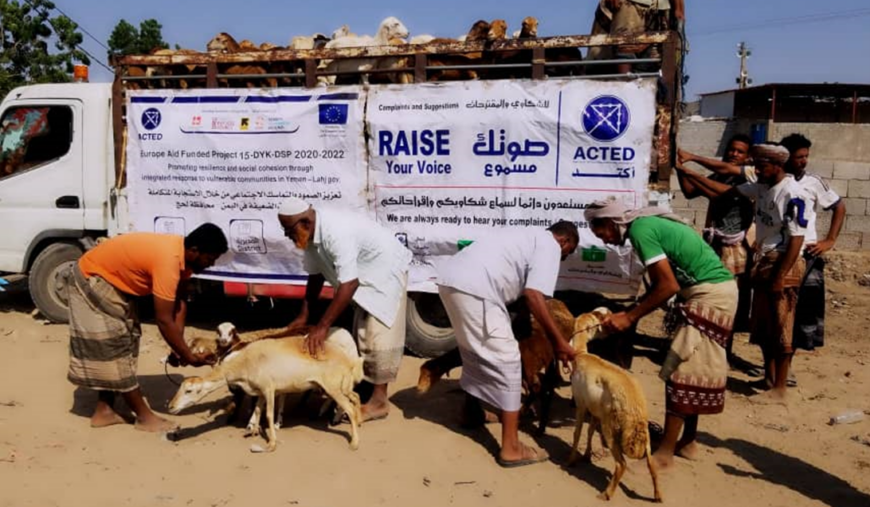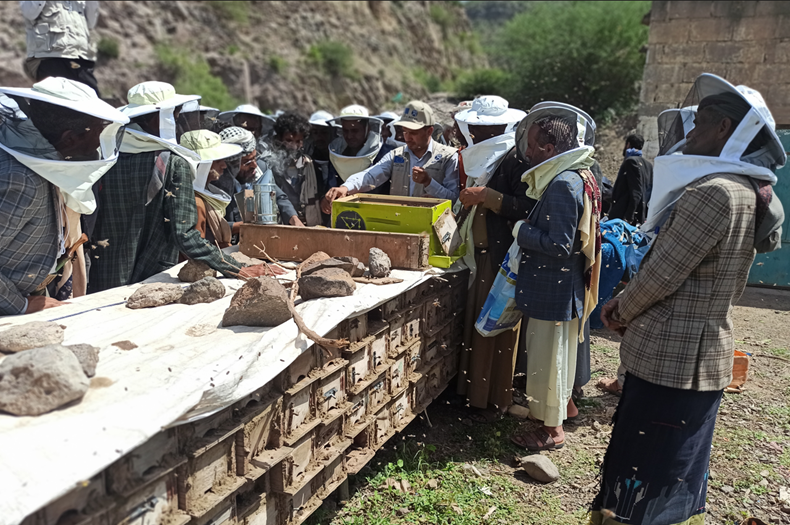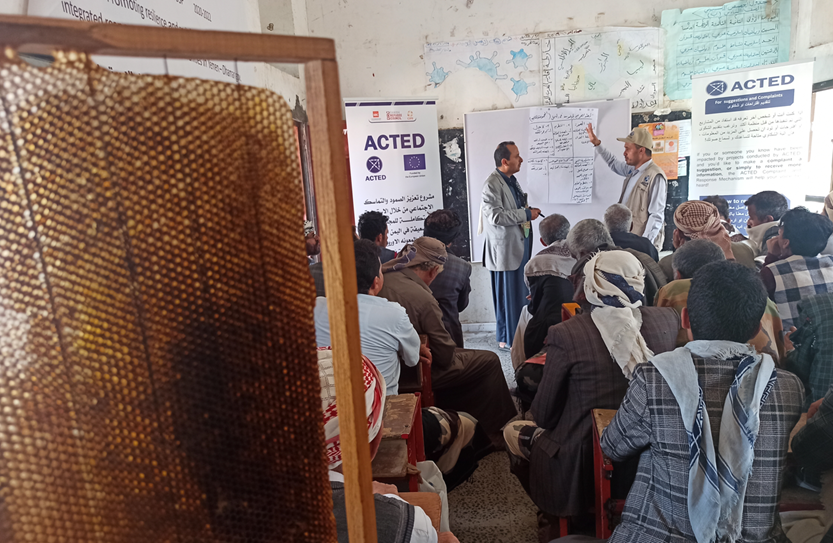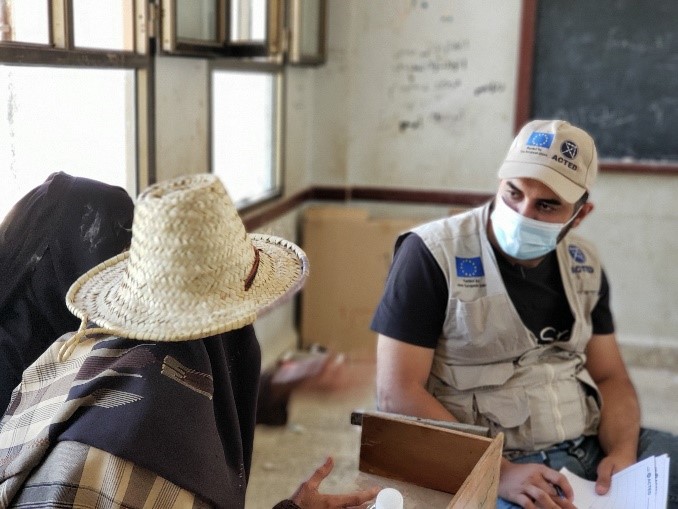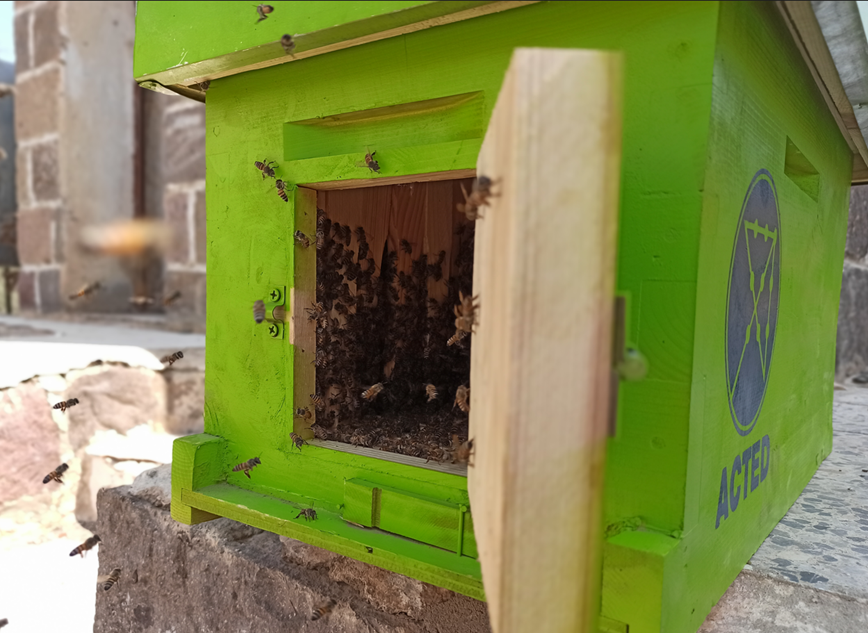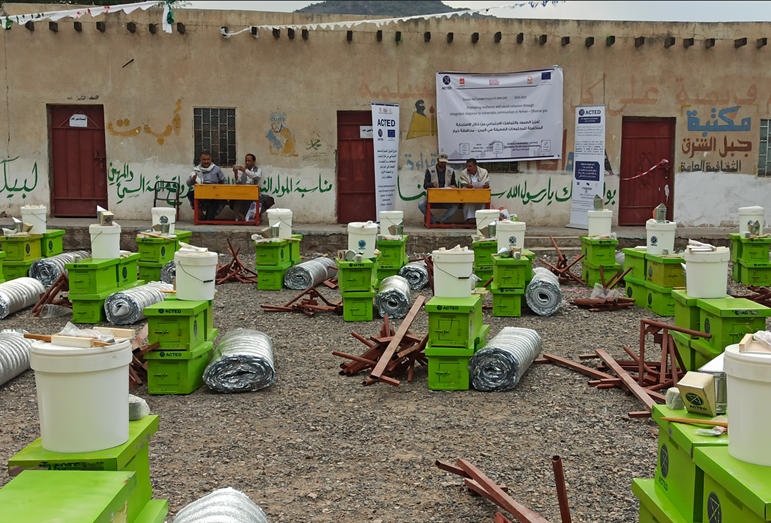In Yemen, families are facing a protracted conflict that has led to violence, displacement, economic collapse, and environmental shocks. As a result, instability is self-fueling and the labour market has been devasted.
The agricultural sector has been particularly affected by these shocks. Families who previously tended livestock or kept bees in the agriculturally important Lahj and Dhamar governorates have been heavily impacted . They have been displaced, their livestock died off, or they have been forced to sell their remaining livestock to support their families.
The ongoing conflict has driven up livestock market prices, leaving many people unable to buy new livestock to restore their livelihoods. High fodder prices, reduced imports, dwindling water sources and the lack of veterinary services are other major challenges for livestock owners.
Through the EU-funded Durable Solutions Project, ACTED has supported Internally Displaced People (IDPs) and host communities to enter – or return to – the livestock sector. While restoring the families’ livelihoods and improving their food security, the action has revitalized the local production and increased the availability of food for the whole community
What is a Durable Solution?
A durable solution is achieved when IDPs no longer have any specific assistance and protection needs that are linked to their displacement and can enjoy their human rights without discrimination resulting from their displacement.
Restoring agricultural livelihoods for vulnerable families
ACTED distributed livestock to vulnerable households who already had or wanted experience in livestock management, and who had access to grazing land. The selected families received goats, sheep, as well as basic livestock care items such as fodder, salt stones and water troughs. as well as training sessions on livestock management. Each project participant also received technical training in animal husbandry (feeding, treatment of simple common diseases, pasture rotation) as well as basic business management training (budget management, marketing).
To complete the action, ACTED trained veterinary volunteers, and provided them with a veterinary kit. The veterinary volunteers were tasked with supporting their communities to treat diseases and prevent outbreaks that could threaten farmers’ livelihoods.
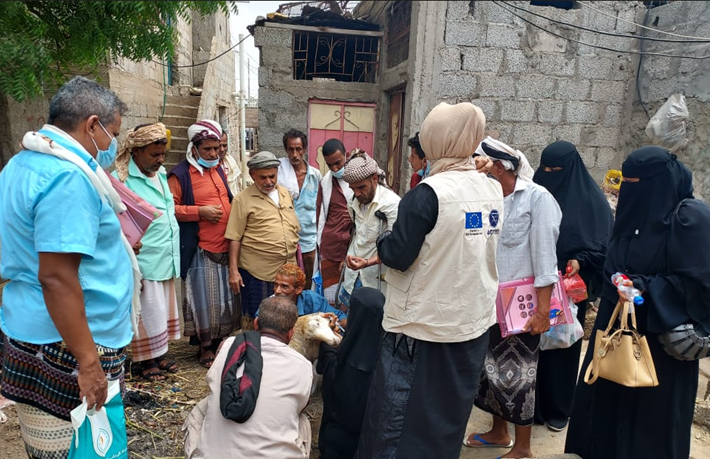
In the governorate of Lahj, especially in the districts of Tuban, Habeel Jabr and Radfan, 292 people took part in the project. After participating in the trainings, they each received 4 female goats or sheep (depending on the location), 50 kilos of concentrated fodder, 4 salt stones and 1 trough. And 20 volunteer veterinarians were trained.
Male goats or sheep were also distributed in the community for breeding purposes, with the intention to promote social cohesion and collaboration in expanding the local availability of livestock
Beekeeping, a sustainable livelihood that preserves biodiversity
In Yemen, beekeeping is widely practiced, as honey is used as both food and medicine. Yemeni honey is renowned worldwide for its unique taste and high quality, making it a valuable source of income for many families. Bees also act as important local pollinators. They encourage the spread of native flora while contributing to nutrient cycles and the prevention of soil erosion. Bees have been identified as a staple species, whose presence encourages environmental regeneration and preservation.
Considering the benefits apiculture can have on people’s livelihoods and biodiversity, ACTED has supported 400 people in Dhamar governorate to launch their beekeeping activity.
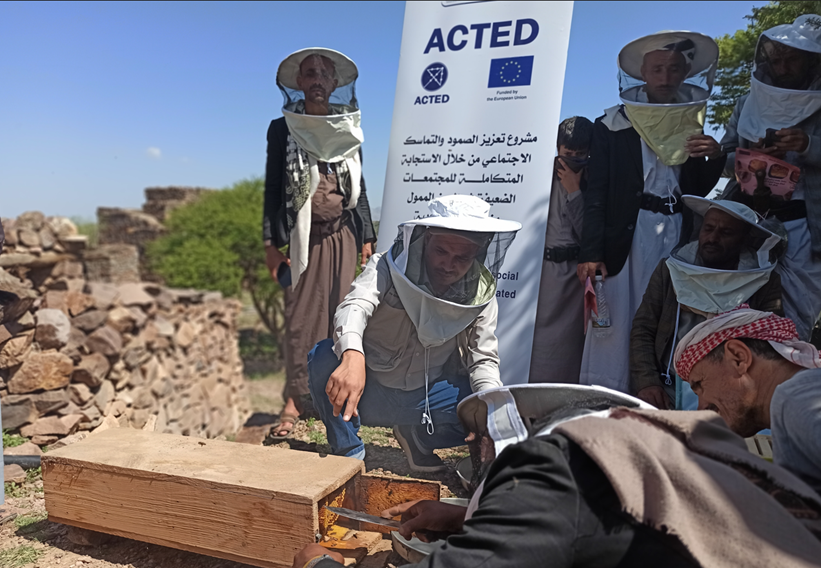
The selected beneficiaries received training in beekeeping, conducted by a local expert. He taught them apiculture techniques, colony maintenance, but also basic marketing and budget management.
After the training, ACTED provided each of them with 4 empty hives, a starter colony and a set of beekeeping tools.
ACTED’s livestock and beekeeping activities under the Durable Solutions Project are in line with ACTED’s Zero Exclusion, Zero Carbon, Zero Poverty approach. While targeting the most marginalized families, such as female-headed households or families with a disabled member, the intervention restores livelihoods and local agricultural food production in a sustainable manner.
With funding from the European Union, ACTED and its partners NRC, DRC, SFCG, IRC, and CARE are implementing a multi-sectoral project to provide durable solutions to Yemeni IDPs and host communities. The project includes interventions in WASH, shelter, emergency livelihoods, health, infrastructure, Civil Society Organization capacity-building, and food security.

